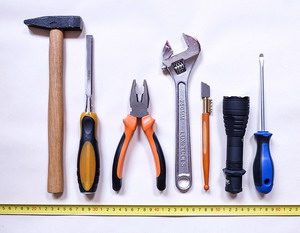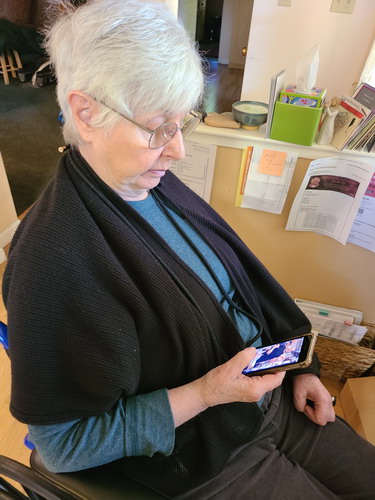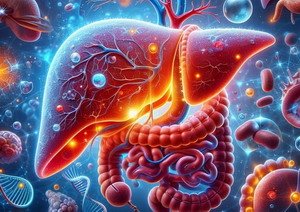Frequently in these newsletters, I have described various bodily conditions and symptoms that have stress as the bottom cause behind their manifestation. Face it, too much stress messes us up. A little bit of stress is necessary to provide interest and motivation in life. However, excessive or prolonged chronic stress only breaks us down. In the past, I have described the inflammatory biochemical pathways involved in the stress response and offered suggestions for ways to intervene. Dietary changes, exercises, meditations, breathing patterns, eye movements, stretches, and all sorts of things can interrupt the stress response to bring the body back to balance. But today I thought I would focus on one of the biggest causes for stress in the first place – poor boundaries. If you can keep from getting stressed in the first place then all that other stuff I have written about in the past becomes unnecessary.
cause behind their manifestation. Face it, too much stress messes us up. A little bit of stress is necessary to provide interest and motivation in life. However, excessive or prolonged chronic stress only breaks us down. In the past, I have described the inflammatory biochemical pathways involved in the stress response and offered suggestions for ways to intervene. Dietary changes, exercises, meditations, breathing patterns, eye movements, stretches, and all sorts of things can interrupt the stress response to bring the body back to balance. But today I thought I would focus on one of the biggest causes for stress in the first place – poor boundaries. If you can keep from getting stressed in the first place then all that other stuff I have written about in the past becomes unnecessary.
Okay, so what are boundaries? Too often people misint erpret boundaries to mean walls or limits we put up to other people. While walls or limits may be a natural consequence of good boundaries, they are not the stuff and substance of a good boundary. In simple terms, a boundary is just about knowing yourself – your strengths, your weaknesses, your interests, all about you. I like to describe boundaries with an analogy of where the ocean meets the land. What we call the shoreline is the boundary between the ocean and the land. The shore is not a wall or a limit, but simply where one entity with its intrinsic properties meets another entity. The ocean is made of water and the land is dry earth. Each has its distinct nature and properties and therefore different ways of behaving. The boundary for the ocean is where its water ends. My boundaries are about who I am, my nature, and where I end and another person begins. Good boundaries are built out of knowing who you are, what you can and cannot do, and what serves you and what does not.
erpret boundaries to mean walls or limits we put up to other people. While walls or limits may be a natural consequence of good boundaries, they are not the stuff and substance of a good boundary. In simple terms, a boundary is just about knowing yourself – your strengths, your weaknesses, your interests, all about you. I like to describe boundaries with an analogy of where the ocean meets the land. What we call the shoreline is the boundary between the ocean and the land. The shore is not a wall or a limit, but simply where one entity with its intrinsic properties meets another entity. The ocean is made of water and the land is dry earth. Each has its distinct nature and properties and therefore different ways of behaving. The boundary for the ocean is where its water ends. My boundaries are about who I am, my nature, and where I end and another person begins. Good boundaries are built out of knowing who you are, what you can and cannot do, and what serves you and what does not.
The idea sounds simple enough, but the application can
 be difficult. If we were all taught from an early age to be completely responsible for meeting our own needs and equally respectful of that same reality in others then boundaries would be pretty easy. But we are not taught this truth. Instead, we might be taught to believe we are dependent and needy, or the opposite, to believe that we don’t need others at all. The reality is human beings are very interdependent. Civilization exists because we have crafted that interdependence into cooperative action, both en masse and through specialization of effort and skills that support each other. Differences working together is what creates civilization. There are no civilizations built from everyone being a baker and no one being a farmer.
be difficult. If we were all taught from an early age to be completely responsible for meeting our own needs and equally respectful of that same reality in others then boundaries would be pretty easy. But we are not taught this truth. Instead, we might be taught to believe we are dependent and needy, or the opposite, to believe that we don’t need others at all. The reality is human beings are very interdependent. Civilization exists because we have crafted that interdependence into cooperative action, both en masse and through specialization of effort and skills that support each other. Differences working together is what creates civilization. There are no civilizations built from everyone being a baker and no one being a farmer.
This idea of differences working together is the essential
 reason we have boundary issues. It is obvious that if everyone were exactly like us, then our needs and wants would be perfectly embraced and supported. We could feel safe and at ease if we were surrounded by sameness. That is why social clubs and organizations are built on everyone sharing a common interest. Farmers all get together, business owners hob knob together, union workers all hang out together, and so on. Unfortunately, this generates a deep belief that we are entitled to have others be our way, since this is what feels like would support us the most. It is a lie, but it feels this way. If everyone were like you then who would do all those jobs that you don’t like, but need to have done? Boundary issues crop up because we must figure out how to participate differently with those who have a difference of opinion. How do we get our needs and wants respected by people who don’t share those same needs and wants? Even if they do share them, how do we get them to put ours first, so we can be okay?
reason we have boundary issues. It is obvious that if everyone were exactly like us, then our needs and wants would be perfectly embraced and supported. We could feel safe and at ease if we were surrounded by sameness. That is why social clubs and organizations are built on everyone sharing a common interest. Farmers all get together, business owners hob knob together, union workers all hang out together, and so on. Unfortunately, this generates a deep belief that we are entitled to have others be our way, since this is what feels like would support us the most. It is a lie, but it feels this way. If everyone were like you then who would do all those jobs that you don’t like, but need to have done? Boundary issues crop up because we must figure out how to participate differently with those who have a difference of opinion. How do we get our needs and wants respected by people who don’t share those same needs and wants? Even if they do share them, how do we get them to put ours first, so we can be okay?
The answer comes back to what I discussed with what we are failing to teach our children – self-responsibility. It is not anyone’s job to put our needs first. That is our job. It is our job to know what we want, and what we can and wish to do to achieve what we want. It is our job to express that to others when appropriate to further our goals. This is self-care as an expression of self-love. Only we know our limits, our willingness, our desires, and what we have to offer. We often fall into the false belief that others should know these things about us. They don’t. That’s not their job. It’s our job to express these things. Our insides are invisible to others. What psychologists call good boundaries is the art of expressing who we are to others. Along with expressing good boundaries comes the skills of listening to the needs and wants of others and then the skills of negotiating win-win exchanges to help each other meet those needs and wants. These are complex skill sets, and most of us have less-than-perfect abilities to perform them. Many of us still have false beliefs and expectations left over from childhood contaminating our ability to have good boundaries.
anyone’s job to put our needs first. That is our job. It is our job to know what we want, and what we can and wish to do to achieve what we want. It is our job to express that to others when appropriate to further our goals. This is self-care as an expression of self-love. Only we know our limits, our willingness, our desires, and what we have to offer. We often fall into the false belief that others should know these things about us. They don’t. That’s not their job. It’s our job to express these things. Our insides are invisible to others. What psychologists call good boundaries is the art of expressing who we are to others. Along with expressing good boundaries comes the skills of listening to the needs and wants of others and then the skills of negotiating win-win exchanges to help each other meet those needs and wants. These are complex skill sets, and most of us have less-than-perfect abilities to perform them. Many of us still have false beliefs and expectations left over from childhood contaminating our ability to have good boundaries.
In researching for this newsletter, I came across a good  video of some of the warning signs of poor boundaries: (To watch this video go to: https://www.youtube.com/watch?v=B7-TtxJwbPk&t=1218s
video of some of the warning signs of poor boundaries: (To watch this video go to: https://www.youtube.com/watch?v=B7-TtxJwbPk&t=1218s
Inability to make decisions
People pleasing
Excessive fatigue
Endless guilt about small things
Lost sense of self
Oversharing
Resentment towards partner’s boundaries
Passive aggressiveness
Fear of rejection or abandonment
If you feel into each of these, can you see how these will create stress? I see these at work every day with patients as the fear of rejection,
oversharing, guilt, people pleasing, win-win, hidden underlying causes of their poor digestion, immune problems, muscle spasms, headaches, and so on. I can usually release the immediate stress manifestation, but until the patient learns to resolve the underlying issues, often boundary issues, the problem will just come back. This is why I am writing about things like boundaries. My job is to help patients re-establish structural balance in their bodies. Maintaining that balance is a daily practice. It takes more than just wearing good shoes and having good ergonomics in your work environment. It also means being both strong and at ease in your relationships with others. Each type of stress affects the functioning of different specific muscles in your body, making them both tight and weak simultaneously. In short order, these unbalanced muscles result in symptoms that inspire you to call the office for an appointment.
There are lots of tools to help you develop good boundaries. I came across several worksheets to help you identify trouble spots. The first step is help in identifying what your boundaries are. I see this as a self-discovery process. Try this from positivepsychology.com
trouble spots. The first step is help in identifying what your boundaries are. I see this as a self-discovery process. Try this from positivepsychology.com
https://positivepsychology.com/wp-content/uploads/2022/11/Visualizing-Your-Boundaries.pdf
Here is a good article on how to set good boundaries by the same folks:
https://positivepsychology.com/great-self-care-setting-healthy-boundaries/
My goal today is to introduce you to a world of support for reducing one of the core causes of stress in your life.
 Everyone can use some amount of work on their boundaries. Some of us got some good training when we were little while others of us are having to learn this stuff from the ground up all on our own. (My training was in how to be a total co-dependent.) I am sure that there are folks out there that have this stuff down pat, but I figure that if you have muscle balance problems that require Chiropractic care, the chances are that you have some of these issues at play. There may be the occasional patient that only needed care due to a fall off a ladder, but otherwise, there is the rest of us.
Everyone can use some amount of work on their boundaries. Some of us got some good training when we were little while others of us are having to learn this stuff from the ground up all on our own. (My training was in how to be a total co-dependent.) I am sure that there are folks out there that have this stuff down pat, but I figure that if you have muscle balance problems that require Chiropractic care, the chances are that you have some of these issues at play. There may be the occasional patient that only needed care due to a fall off a ladder, but otherwise, there is the rest of us.
David
Hey, that amazing C15 supplement that is for mak ing your cell membranes stronger/less fragile is now available in the office! Pick yours up now!
ing your cell membranes stronger/less fragile is now available in the office! Pick yours up now!
Ellen
Ellen, like so many of us, spends a lot of time watching videos on her phone. Endless bite sized bits of interesting information
 are very attractive. Her current obsession is with Belgian Malinois dogs that have been trained to do amazing things to help police and handicapped people. Some of the things she tells me they do are stretching my limits of believability.
are very attractive. Her current obsession is with Belgian Malinois dogs that have been trained to do amazing things to help police and handicapped people. Some of the things she tells me they do are stretching my limits of believability.
Manuka honey reduces breast cancer 84%
Although only demonstrated with human breast canc er cells implanted in mice, the oral consumption of Manuka honey reduced the breast cancer by 84%. Human studies have not been done yet, Manuka honey is already well known for its many health benefits.
er cells implanted in mice, the oral consumption of Manuka honey reduced the breast cancer by 84%. Human studies have not been done yet, Manuka honey is already well known for its many health benefits.
___________________________
“People have motives and thoughts of which they are unaware. “
~Albert Ellis
_____________________________________
Researchers have found that certain metabolites found
 in the guts of two specific species of fish were found to both fight wrinkles and age spots by inactivating the enzymes in us that cause these.
in the guts of two specific species of fish were found to both fight wrinkles and age spots by inactivating the enzymes in us that cause these.
____________________________
“Acceptance is not love. You love a person because he or she has lovable traits, but you accept everybody just because they’re alive and human.”
~Albert Ellis
________________________________________
Herbs and liver toxicity
Although we like to believe that anything natural is g ood for us, any casual run through poison oak will show us otherwise. Researchers are cautioning consumers to be aware that many herbs can damage your liver when taken in too high a dose or combined with other liver affecting herbs. This study looked at curcumin, ashwagandha, garcinia, green tea extract, black cohosh, and red rice yeast.
ood for us, any casual run through poison oak will show us otherwise. Researchers are cautioning consumers to be aware that many herbs can damage your liver when taken in too high a dose or combined with other liver affecting herbs. This study looked at curcumin, ashwagandha, garcinia, green tea extract, black cohosh, and red rice yeast.
________________________
“The art of love is largely the art of persistence.”
~Albert Ellis
